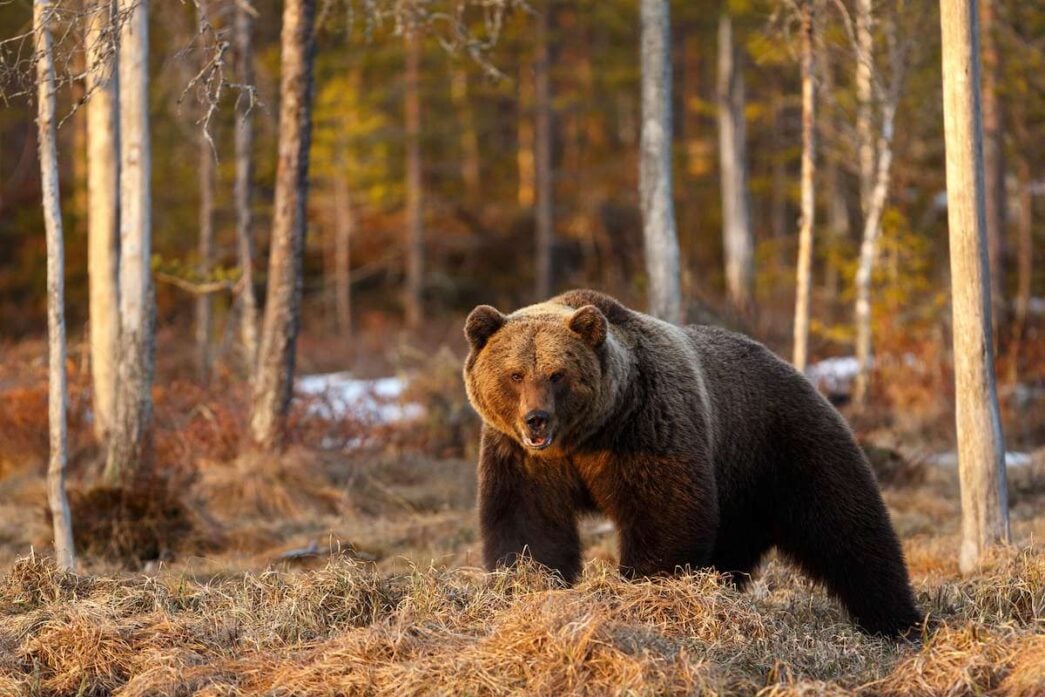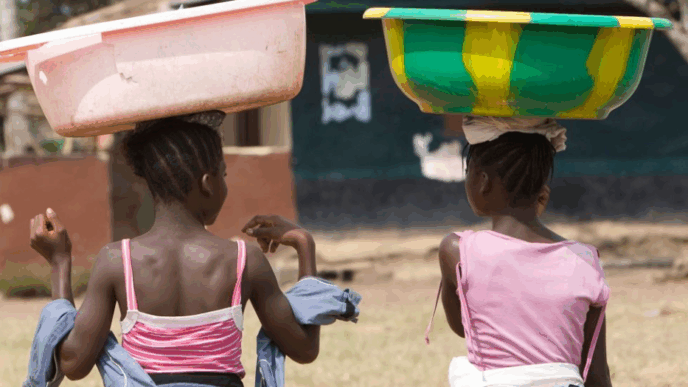IJEOMA OKOCHI
In April 2024, the TikTok world exploded with a viral post from Screenshot HQ, where seven out of eight women interviewed said they would prefer to be alone in the woods with a bear than with a man. The video amassed over 16 million views in just two months. Yes, you read that right—a bear.
Now that I’ve established the context, let’s pause and unpack this. Why would not just seven women, but a significant number of women (and some men) express a preference for the company of a wild animal over a fellow human being, specifically, a man? The reactions were telling. Some men took offence, resorting to name-calling and vilifying women for their choice. Others only showed empathy when someone close to them—often a daughter—was metaphorically “placed in the woods.” It always has to get personal before we can hope for some male advocates, doesn’t it?
Yes, yes, I know the refrain: “Not all men are the same” While we await the elusive group of “not all men” to raise the (ever-decreasing) bar back to basic dignity, the reality remains stark. Violence against women is rising globally, and ignoring it won’t make it disappear.
Advertisement
A woman’s life is marked by uproars.
When she’s born, most would prefer a son.
Once she’s mature, her roles and worth are prescribed by “society”.
Advertisement
In her early twenties, she must be married, “chosen”.
In her thirties and unmarried? She must have done something to make her unworthy of being “picked”.
In marriage, depending on who she marries, she loses her rights as an individual and must submit to the will of her husband; more like a dictatorship not a partnership.
If she’s lucky, she has children in the first year.
Advertisement
If childless, she must have had several abortions before marriage.
If widowed, humiliating traditional rites involve shaving her head for someone who no longer exists.
If she dares to remarry, she faces guilt and sometimes needs permission from her late husband’s family.
Well, damned if you do and damned if you don’t! The plight of a woman is an impossible set of contradictions.
Advertisement
Society seems to demand we either love or hate her – without reason. Most men, perplexingly, pick the latter. “That’s not true”, you might say. Well, how else do you explain the persistence of rape, intimate partner violence, femicide, assault, trafficking, pimping, murder, and rampant misogyny? How do you rationalise the “why” behind these horrors—because we shouldn’t have to.
Because any attempt to justify any kind of violence, sexual violence inclusive, is the uttermost decay of morals of the society and reveals the true problem: the culture of blame. Sadly, this is the plight of most victims and survivors who are bombarded with questions such as:
Advertisement
“What were you wearing?”
“Why did you provoke him?”
Advertisement
“Are you sure it wasn’t consensual?”
“Why were you there so late?”
Advertisement
“You shouldn’t have argued back.”
“You shouldn’t have been too loud.”
“You shouldn’t have kept him waiting.”
“You shouldn’t have tempted him.”
“You, you, you, you”…The victim gets scrutinised. The perpetrator gets a pass. The blame, burden, responsibility and consequence are piled on her shoulders, and rarely on the man who committed the act.
And please, spare me the tired, weak rebuttal: “Men get abused too!” Yes, some do. But by whom? Men. Men abuse men; men abuse women. Do your research. When you look at global data—from the United Nations to the World Health Organisation—the overwhelming majority of sexual and gender-based violence victims are women, and the perpetrators are predominantly men. (For recent data, see UN Women’s Global Database on Violence Against Women). The numbers don’t lie; the facts are clear. Women are disproportionately sexually assaulted, abused, harassed and violated. By men.
Look at Haiti. Or don’t, because your heart might break over the atrocities happening there. The BBC Africa caption read: “The worst place in the world to be a woman”. A city rife with rape and sexual violence of women and children (minors inclusive) by rebel gangs. Why? Why? Why? To what end?
However, there will still be a remnant who would argue or refute these facts. So let me test your comfort levels:
Do you ever worry your drink might be spiked by a woman at a club?
Are you afraid of riding alone on a bus in Delhi surrounded by women?
Does seeing a group of women drinking and smoking as you walk alone down a dark alley at night make you nervous?
Do you carry pepper spray, tasers, or a rape whistle in your “man purse”?
Have you felt the need for self-defence training to protect yourself from women?
Does the thought of armed robbery or kidnapping make you fear rape?
Is the rate of death of men from misandry higher than the rates of femicide or intimate partner violence?
If your answer is “no” to all of the above, congratulations. You experience a level of safety most women can only wish for.
That viral TikTok was more than a meme. It was a heartbreaking, powerful message: women would rather face a wild animal than risk harm from men. This is not just a choice; it’s a condemnation of the world we live in.
So, do men need to wait for harm to women they love before recognising their privilege and rise to protect them? Absolutely not. Yet, we don’t. We don’t believe women. We don’t protect them enough – save for Eli and Simeon in the Bible who slaughtered a whole village of men because their sister was raped by a man in that village. Talk about “actions that have repercussions” or better still “men supporting women” – a little extreme but hey!
And that’s why reporting rates are dismally low.
That’s why impunity by perpetrators remains high.
That’s why sexual violence—even by intimate partners—continues unabated (just look at the Pelicot case, a recent scandal highlighting systemic failures).
That’s why we chose the bear.
Ijeoma can be contacted via [email protected]
Views expressed by contributors are strictly personal and not of TheCable.












